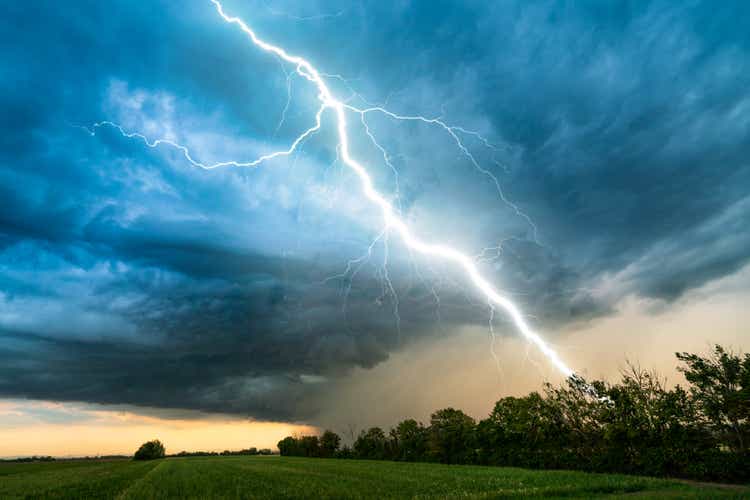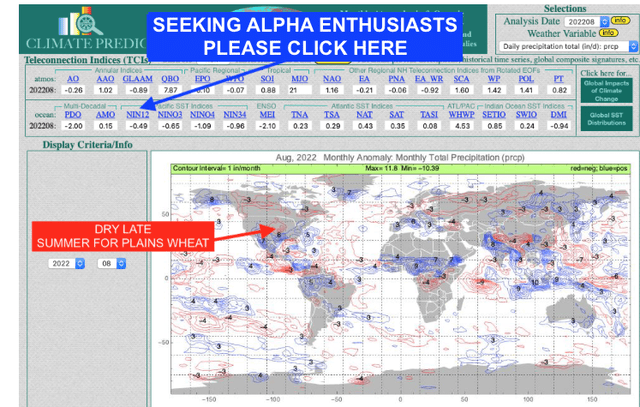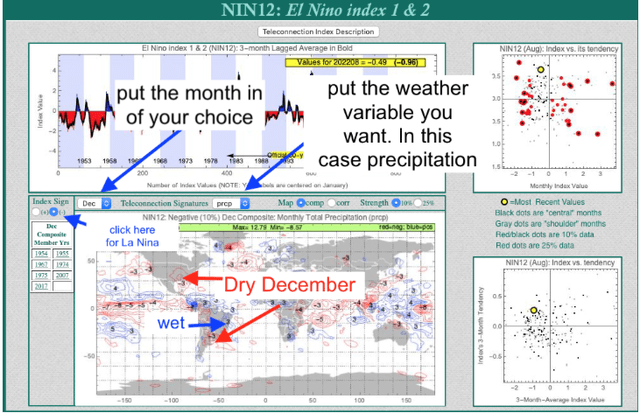amriphoto
Aftermath of Hurricane Ian
I am just recovering from one of the most deadly hurricanes ever to hit my home state in southwestern Florida. Just amazing. Incredibly, I was very early predicting this, and earlier this week I discussed on Bloomberg TV my overall bearish concerns for many commodities. This sentiment I have been preaching for weeks to my Weather Wealth clients, especially in coffee, natural gas, and even gold. You can get a free sample of my newsletter here.
Post Hurricane Ian in Ft. Meyers (Jim Roemer’s Weather Wealth newsletter)
In the midst of rising interest rates, a stronger dollar, and a possible global recession, it is the grain market that, “down the road” – may have the best potential for a renewed bull market.
One of my best trades of late was being short gold and long the ProShares UltraShort Gold ETF (GLL) over the last 4 months. It now is a little late to become bearish gold, following a $250 break in prices. Gold is no longer the place to run to safety.
Below, is the interview I did earlier this week on hurricane Ian and my view of commodities, just prior to the subsequent additional 1500-point break in the Dow Jones Industrial Average.
Jim Roemer Bloomberg interview (www.bestweatherinc.com)
Growing global weather problems for grains are likely again
With respect to the grain market, the USDA on Friday put out a surprisingly bearish stocks report for soybeans, sending prices reeling. While corn prices initially rallied sharply on their report, the idea of the potential for good Midwest October harvest pressure helped corn prices. Wheat prices have been the leader again due to the tightest global stocks since 2016-2017 but we are also seeing new weather problems again:
- The previous drought in Europe,
- Too wet for what planting in Ukraine
- The drought growing in the Plains, due to La Niña gaining strength
- Droughts in Argentina and China that may affect their corn and wheat crops further.
Using Climate Predict to make weather forecasts for from natural gas to grains and soft commodities
I thought I would teach Seeking Alpha readers a little thing about how I use teleconnections to predict weather and markets, months in advance, for my clients.
For starters, it is important to monitor what I believe will be the third straight winter of at least a moderate La Niña. Ocean temperatures in the Pacific are not warming as many other meteorologists and scientists felt months ago. In fact, they are cooling (see below).
La Nina is alive and well (www.bestweatherinc.com)
So… here you go, please go to this website. What you’ll get is the free LITE version of my in-house software.
See the instructions below to see how to predict possible grain and coffee weather using strictly the cooling at Nino12
JIM ROEMER’S LONG RANGE WEATHER FORECAST SOFTWARE (WWW.CLIMATEPREDICT.COM)
After you go to the site and click on Nino12, here are the instructions below. The Index sign when positive for this particular teleconnection would be El Niño (warm ocean temps), but we still have cool Pacific ocean temps (La Niña), so make sure the negative sign (-) is checked.
Using Climate Predict weather software (www.climatepredict.com)
Conclusion:
While it isn’t “written in stone” that a dry winter (South American summer) will hurt all grain crops in Brazil and Argentina, one can see the analog years above on the map and how above-normal rainfall should continue to help the 2023 Brazil coffee crop (JO). I have had a bearish longer-term view in coffee for my newsletter clients for months.
The greatest risk for dryness could be for Plains wheat (ETF:WEAT) and Argentina corn (ETF:CORN) and soybeans (ETF:SOYB).
With respect to natural gas (UNG), this software will help us predict winter weather. Already we have specific options positions on for clients which have been extremely profitable. A hint is that any major sustained cold winter for the energy markets is not likely at least for the next few months.


Be the first to comment